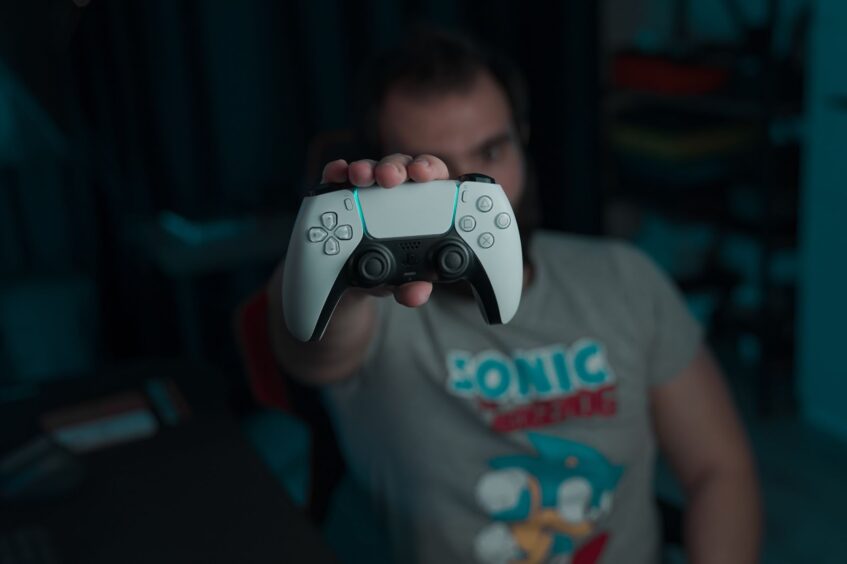Video Games for Connectedness and Socialisation
Video games are a hugely popular with people of all ages, and can impact the way people interact and socialise. Whilst video games are often thought of as solitary activities, they can be used to foster connectedness and socialisation.
Multiplayer gaming allows players to connect with one another, offering opportunities for communication and collaboration with other players from around the world. Through multiplayer gaming, individuals can build lasting friendships, find like-minded gamers, or even create a supportive community. Connectedness through gaming can offer vital emotional support during difficult times, and a sense of belonging to individuals who might be isolated otherwise.
Social media networks also make it possible for gamers to stay in touch without having to play games, and over long distances. Through platforms like Twitch and Discord, players can exchange messages about their favourite games, organise events such as tournaments or meet-ups, and identify common ground. This type of virtual communication helps establish strong bonds between gamers that might otherwise not have been possible without modern technology.
However, it is important to be mindful that playing excessive immersion in video games can lead to isolation in real life and damage relationships. To ensure that they remain healthy and connected to the real world, it is important for gamers to set boundaries with time spent gaming, to balance time playing video games and spending time with friends or family members in person.
By exploring multiplayer gaming options or utilising various social media networks, gamers can build strong relationships and communities, however, moderation is key to remain grounded in the real world.
Video Games for Emotional Distress – Grabbing Your Attention

While research continues to explore the potential positive impacts of gaming, it is important to consider how playing video games can help reduce emotional distress.
Playing video games can be an effective way to ground yourself in the present when being overwhelmed by difficult thoughts and feelings. The process of completing challenges within the game allows for a sense of achievement, which can boost confidence and self-esteem. This Can lead to engaging in other activities that promote well-being, such as exercise or going outside. There are some genres which contain more violence than others however, and these should be avoided when trying to manage emotions through gaming, as these can increase feelings of aggression rather than calming.
Playing online multiplayer games as avatars, creates a safe space for friendships among those who may otherwise be isolated such as due to neurodivergence or mental health. Being part of a gaming community provides a safe space for individuals to be accepted and understood, fostering meaningful connections that could improve self-esteem.
Another way video games help reduce emotional distress lies in the immersive storylines created by developers. Studies have shown that playing narrative-driven video games may improve empathy and resilience by placing players within emotionally challenging scenarios which require thoughtful responses. By providing an alternate world where conditions are controlled enough for players to experiment with different strategies, helps them become better equipped at handling stressors they encounter in everyday life.
It is important to remember moderation is key – too much playing could produce negative effects just like any activity done in excess. Whilst further research needs to be conducted on the effects video game play has on mental health, they appear to offer opportunities to alleviate emotional distress when practiced responsibly and mindfully.
Using Video Games in Moderation

While some experts argue that video games can be beneficial for mental health, it is important to ensure that they are accessed in moderation. Too much time spent engaging in virtual worlds can have detrimental impacts on physical and mental health.
Video games can improve hand-eye coordination and cognitive abilities, which can help to reduce stress and anxiety levels. They can offer an escape from reality, allowing players to immerse themselves in another world, and enjoy the thrill of virtual adventures. Online gaming communities can also be great sources of social interaction for people who may struggle with in-person social interaction due to anxiety or neurodivergence. Games with story elements provide an opportunity for emotional catharsis, allowing players to process their own difficulties in a safe environment.
However, excessive time spent playing video games can result in eyestrain, headaches, weight gain or loss due to reduced physical activity and nutrition choices. Furthermore, it may also isolation from family members and friends who do not share the same passion for gaming, and avoidance of challenging emotions. This could result in decreased self-esteem as well as general unhappiness when away from the game controllers. In some cases, gaming may lead to poor mental health. If this happens, then it is important that mental health support is sought to ensure it doesn’t deteriorate further.
In order to benefit from gaming, it is important to set limits on the amount of time spent playing each day and week. Making sure to take breaks throughout gameplay is also essential in order to keep your mind and body healthy and decrease cognitive exhaustion; whether getting fresh air, breaks to make and eat nutritious meals or spend time with others. Additionally, age-appropriate gaming prevents exposure to inappropriate content which is unsuitable for younger gamers.
If you enjoy games and gaming and want more NEWS from the Gaming World Click Here








You must be logged in to post a comment.